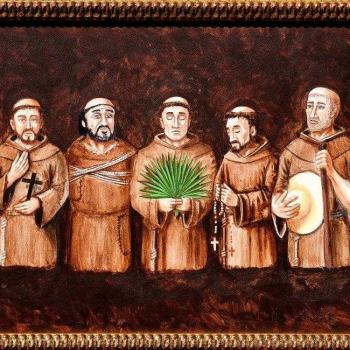Jesus often has a way of not answering the question he is asked.
Instead of answering, he asks a question in return. Instead of answering, he likes to tell a story. Instead of answering, he begins to speak of something much more profound that he renders the one asking the question silent.
Today’s Gospel passage is no exception.
Saint Luke tells of a scholar of the law, a faithful Jewish Pharisee, who comes to Jesus to test him: “What must I do to inherit eternal life?” Jesus does not answer the question, but rather asks the Pharisee a question, “What is written in the law?”
Jesus turns the tables on him. The Pharisee had tried to test Jesus to see if he was correct, but now it is Jesus who says to the Pharisee, “You have answered correctly.” Jesus smoothly goes from being the one tested by the Pharisee to being the one testing the Pharisee.
The Pharisee must have already been a little upset at this, so he asks, “who is my neighbor?” (since the law says to love your neighbor as yourself).
Again, Jesus does not answer the question, but this time he tells a story. We have heard this story so many times, the Parable of the Good Samaritan. A priest goes by a dying man on the side of the road and keeps going. Then another priest walks past the same dying man and does nothing. I’m sure the Pharisee was not liking the story.
Then comes the hero, a Samaritan, who cares for the dying man and pays for his care. All Jews, including our friend the Pharisee speaking to Jesus, absolutely hated the Samaritans. Samaritans were descendants of Jews who had intermarried with Assyrians seven centuries before Christ. Both Jews and Samaritans forbade any contact with the other, even visiting the other territory was condemned.
When he concludes his story, Jesus now asks a question, “Which of these three, in your opinion, was neighbor to the robbers’ victim?” The Pharisee must have been so furious he could not even answer “the Samaritan.” He simply says, “The one who treated him with mercy.” Insulting him even more, Jesus says, “Go and do likewise.” Jesus tells a Pharisee to go be like a Samaritan. What an insult.
This parable is not so much about the Samaritan being a good man. This parable is not so much about the importance of helping out the needy.
Place this parable in the context of the Gospel and the parable is about Jesus teaching us to find God’s presence in those we dislike the most. In the most despicable, repulsive and unattractive.
Jesus is telling the Pharisee to love Samaritans, those he hates the most. As the Samaritan loved the dying man, so too the Pharisee must love the Samaritan. The Parable is an invitation to the teacher of the law to open up his heart and to love.
Who is Jesus inviting you to love today?
Who has hurt you? Who do you find repulsive? Who upsets you? Even he, even she, is worthy of God’s love.
Replace the Samaritan in the Parable with that person or group of people you dislike. Replace the priests who walked by doing nothing with yourself. That is what Jesus did for the Pharisee and Jesus made him uncomfortable. That is what Jesus wants to do in our hearts, and it will make us uncomfortable.
Jesus calls us to love our neighbor by recognizing God’s presence in every person. We are to recognize every person as part of God’s precious creation and made in His own image and likeness regardless of race, ability, gender, language, sexual orientation, legal status etc.
Yet this doesn’t come easy to us – we need help.
God’s grace allows us to see His presence in another human being and to treat him or her accordingly.
How about when a person commits a terrible crime? What if a person’s life choices do not correspond with mine? Or they are simply too selfish and conceited, making it difficult to love them?
These people, despite their sins, are part of God’s creation and are worthy of love and respect. Recognition of this reality requires supernatural grace.
This is the Christian vision of humanity. And this should also be our own.
As Jesus reminds us of his great undeserved love for us as he surrenders himself at this altar, let’s ask him to help us embrace our neighbor and to love him. May we have a change of heart after hearing this powerful parable.
Homily 15th Sunday of Ordinary Time Year C
















